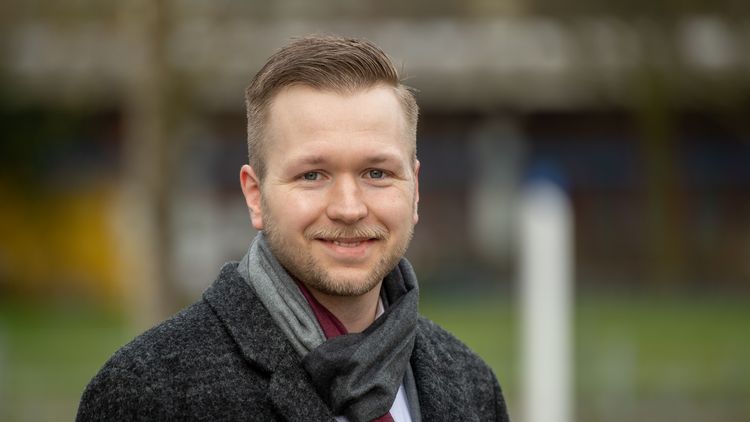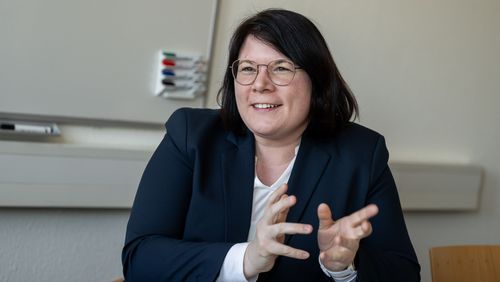Physicist Martin Esman has received an Ossietzky Fellowship for his research on nanoscale phenomena. He investigates transport processes in which light particles interact with sound waves in solid objects.
The University of Oldenburg has awarded physicist Martin Esmann a Carl von Ossietzky Young Researchers' Fellowship for his research. The funding from the fellowship will enable him to advance his academic career and apply for funding for independent research, such as the grants for early-career scientists offered by the European Research Council (ERC). "Our University's funding programme has proven very successful in offering highly qualified young researchers long-term support in their research and academic careers and enabling them to become scientifically independent at an early stage," said Professor Martin Fränzle, the University's Vice President for Research, Transfer and Digitalization. Esmann is currently conducting his research project in collaboration with the Quantum Materials group led by Professor Christian Schneider at the University's Institute of Physics. In addition, he plans to gain further qualifications in teaching.
Esmann's research focuses on physical phenomena on the nanoscopic scale, i.e., on a scale of a few billionths of a metre. He studies transport processes in which light particles interact with sound waves in solid objects. "In the long term, I want to find out how acoustic oscillations can be used to control certain processes in nanocircuits," he explained. To this end, he plans to investigate exciton-polaritons – quasiparticles that are the result of a coupling between excited electrons in solids and light particles. "Exciton-polaritons are promising experimental tools for various applications. They could be used in miniaturized circuits and components that work with light instead of electronic current," Esmann added.
Esmann studied physics at the University of Oldenburg. During his undergraduate studies he spent six months on a research visit at Harvard University (USA). In 2012 he received an award from the University of Oldenburg's School of Mathematics and Science for his outstanding master's thesis. He completed his PhD in Oldenburg in 2016 in Professor Christoph Lienau's Ultrafast Nano-Optics group, and then took up a post as a postdoctoral researcher at the Centre for Nanoscience and Nanotechnology (C2N) in Palaiseau (France), a research institute of the French research organization CNRS and the Université Paris-Saclay. He received a research grant from the German Research Foundation (DFG) to fund his stay there.
The University of Oldenburg has awarded the Carl von Ossietzky Young Researchers' Fellowship to ten outstanding postdoctoral researchers since 2013.




